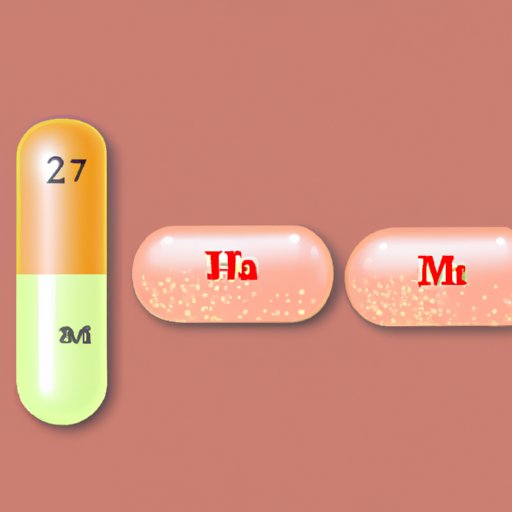
I. Introduction
Vitamin B12 is an essential nutrient that plays a vital role in your body’s functions. With its many benefits, it’s no wonder why people are considering adding it to their daily routine. In this article, we will explore the benefits, risks, and natural sources of Vitamin B12 to help you decide whether or not you should take supplements.
II. The benefits of taking Vitamin B12: why you should consider adding it to your routine
Vitamin B12 is an important nutrient for a healthy body. From maintaining healthy nerve cells to creating DNA, there are many benefits to having enough Vitamin B12 in your diet. Specifically, it can improve your energy levels, brain function, and heart health. Additionally, a Vitamin B12 deficiency can lead to fatigue, anemia, and even neurological problems.
III. Vitamin B12: what you need to know before taking it
Before adding any supplement to your diet, it’s essential to learn about the supplement itself. Vitamin B12 is a water-soluble vitamin that your body needs in small amounts to function correctly. There are several different forms of Vitamin B12 supplements available, including pills, gummies, and injections. The recommended dosage varies for different groups of people, including children, pregnant women, seniors, and vegans. However, taking more than the recommended doses of Vitamin B12 can have side effects, such as acne, skin rashes, and diarrhea.
IV. Why do we need Vitamin B12? The science behind its health benefits
Vitamin B12 plays an essential role in many of your body’s functions. It helps with nerve cell function and maintaining healthy red blood cells. Additionally, Vitamin B12 can help boost cognitive function and reduce the risk of heart disease. A deficiency in Vitamin B12 can lead to anemia, decreased cognitive function, and other health problems.
V. To supplement or not to supplement: weighing the pros and cons of adding Vitamin B12 to your diet
There are several ways to incorporate Vitamin B12 into your diet, including supplements, fortified foods, and naturally occurring sources. Supplementing with Vitamin B12 can be an excellent option for people who have a Vitamin B12 deficiency or follow a plant-based diet that may not provide enough Vitamin B12. However, there are risks associated with supplementing, such as taking too much or experiencing negative side effects. Before starting any supplement routine, it’s essential to speak with a healthcare professional.
VI. How to incorporate more Vitamin B12 into your diet without taking supplements
There are plenty of natural food sources of Vitamin B12 that you can add to your diet, such as animal products like meat, fish, and dairy. Additionally, many fortified foods, such as breakfast cereals and plant-based milk, contain added Vitamin B12. For vegans and vegetarians, it may be more challenging to get enough Vitamin B12 from diet alone, but incorporating fortified foods and supplements can help ensure you’re getting enough.
VII. Common myths about Vitamin B12 and the truth behind them
There are many myths surrounding Vitamin B12, such as it can help with weight loss or boost energy levels. However, there is little scientific evidence to support these claims. Additionally, some people believe that plant-based diets provide enough Vitamin B12, but vegans and vegetarians may still need to supplement or add fortified foods to their diet to get enough.
VIII. Conclusion
Vitamin B12 is a vital nutrient that plays an important role in the body. Whether or not to supplement with Vitamin B12 depends on your individual needs and circumstances. Before making any changes to your diet or supplement routine, it’s essential to speak with a healthcare professional. By incorporating natural sources of Vitamin B12 into your diet and considering supplementing when necessary, you can ensure your body is getting enough of this essential nutrient.




